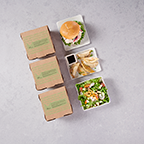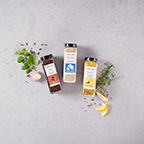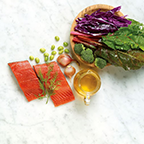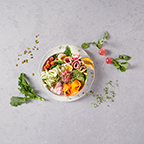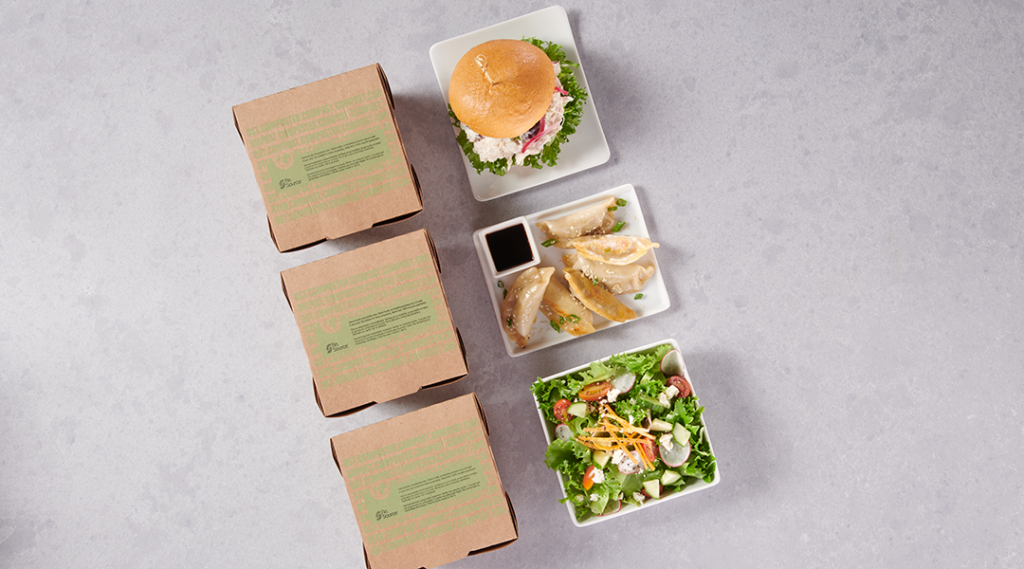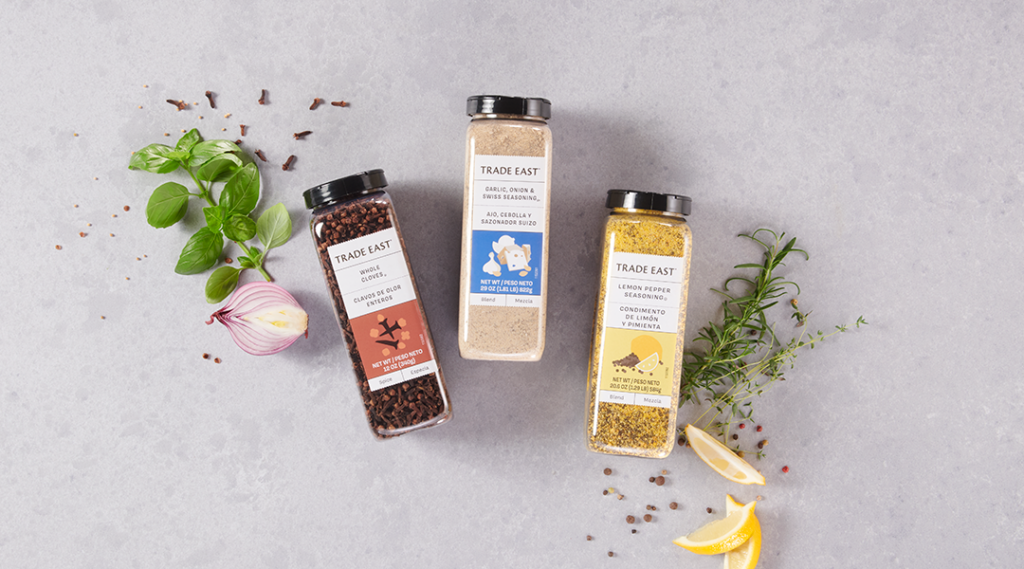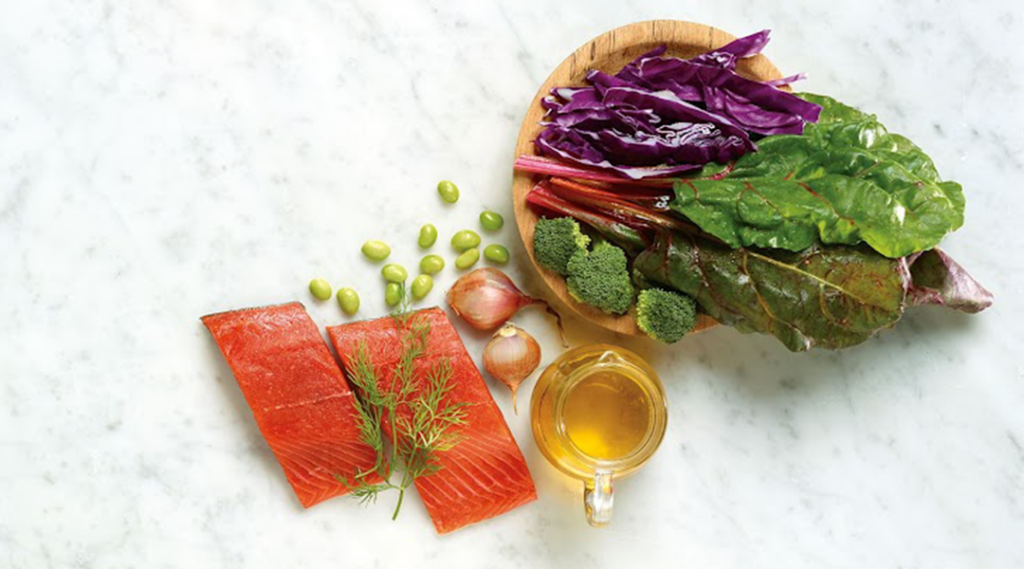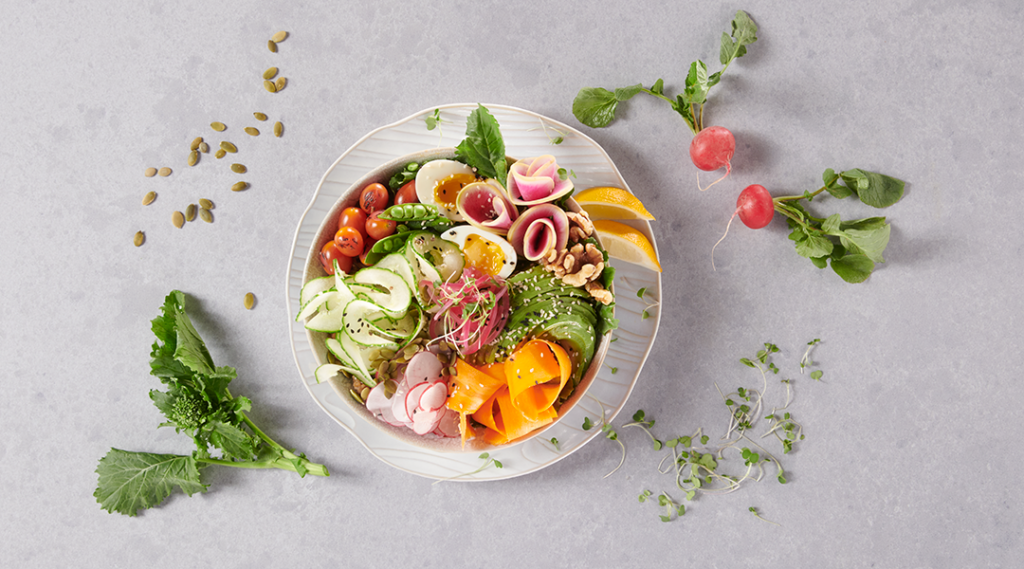Variety, checking food labels and planning meals are the best ways to assure healthy eating.
People choose a vegetarian diet for an array of reasons, including personal preference, health concerns, dislike for certain food, or they believe a plant-based diet is healthier. Some also adopt a vegetarian lifestyle for ethical reasons, environmental concerns, or religious beliefs. There are many different types of vegetarianism. The chart below explains the different types, what food groups they eat, and any possible nutrition concerns.
|
Beef/ Pork |
Fish/ Fowl |
Milk/ Dairy |
Œufs |
Vegetables/ Fruits/ Cereals/ Bread/ Nuts |
Nutrition Concern |
|
|
Traditional Diet |
✔ |
✔ |
✔ |
✔ |
✔ |
None |
|
Semi – Vegetarian |
✔ |
✔ |
✔ |
✔ |
None |
|
|
Lacto- Ovo- Vegetarian |
✔ |
✔ |
✔ |
Iron, Zinc |
||
|
Ovo – Vegetarian |
✔ |
✔ |
le fer |
|||
|
Lacto – Vegetarian |
✔ |
✔ |
Iron, Zinc, B12 |
|||
|
Végétalien |
✔ |
Calories, B12, Iron, Protein, Zinc, Calcium, Vitamin D |
No matter which category of vegetarian someone falls into, it is important to choose an assortment of food, including whole grains, fruits, vegetables, legumes, nuts and seeds. Vegetarians can have a great deal of variety in their diet without using animal foods. However, a commitment to reading food labels and planning meals is necessary to stay healthy. “It is the position of the Academy of Nutrition and Dietetics that appropriately planned vegetarian diets, including total vegetarian or vegan diets, are healthful, nutritionally adequate, and may provide health benefits in the prevention and treatment of certain diseases.”
As stated in the table above nutrients of concern are; Iron, Zinc, B12, Vitamin D, and Protein.
Here are some vegetarian sources of each:
les protéines: legumes, whole grains, nuts, seeds, soy products (tofu, tempeh, soymilk)
Vitamin D: fortified plant based milk, orange juice, and ready-to-eat cereals
le calcium: fortified plant milks, fortified juices, tofu, leafy greens, beans, nuts, cereal
le fer: dark-green leafy vegetables, beans, peanut butter, fortified breakfast cereals
Zinc: nuts, grains, soy products, and legumes
B12: fortified foods including nutritional yeast, soymilk, ready-to-eat cereals
*Ask a doctor or dietitian about taking a daily multivitamin or other supplement to ensure a nutritionally adequate diet.
Vegetarian/ Vegan High Protein Snack Ideas:
-
Trail mix
-
Nut butters on whole wheat bread
-
Granola/ granola bars
-
Roasted chickpeas
-
Nuts and seeds
-
Oatmeal
Incorporating vegetarian options into your menu may sound difficult, but it can be fairly simple. First, expand the variety of vegetables available on your menu. Instead of treating vegetables like a garnish, make them the center of the plate in certain dishes. This can be done by adding salads to the menu that include many different fruits and vegetables. Also think of creative ways to incorporate protein such as adding nuts or seeds to a salad or main dish. Vegetables can be cooked in a variety of ways so take advantage of preparing a variety of vegetables by sauteing, baking, roasting, steaming, grilling, etc. Also, sell the menu options by emphasizing the flavours, variety, taste, and healthy eating aspect.




